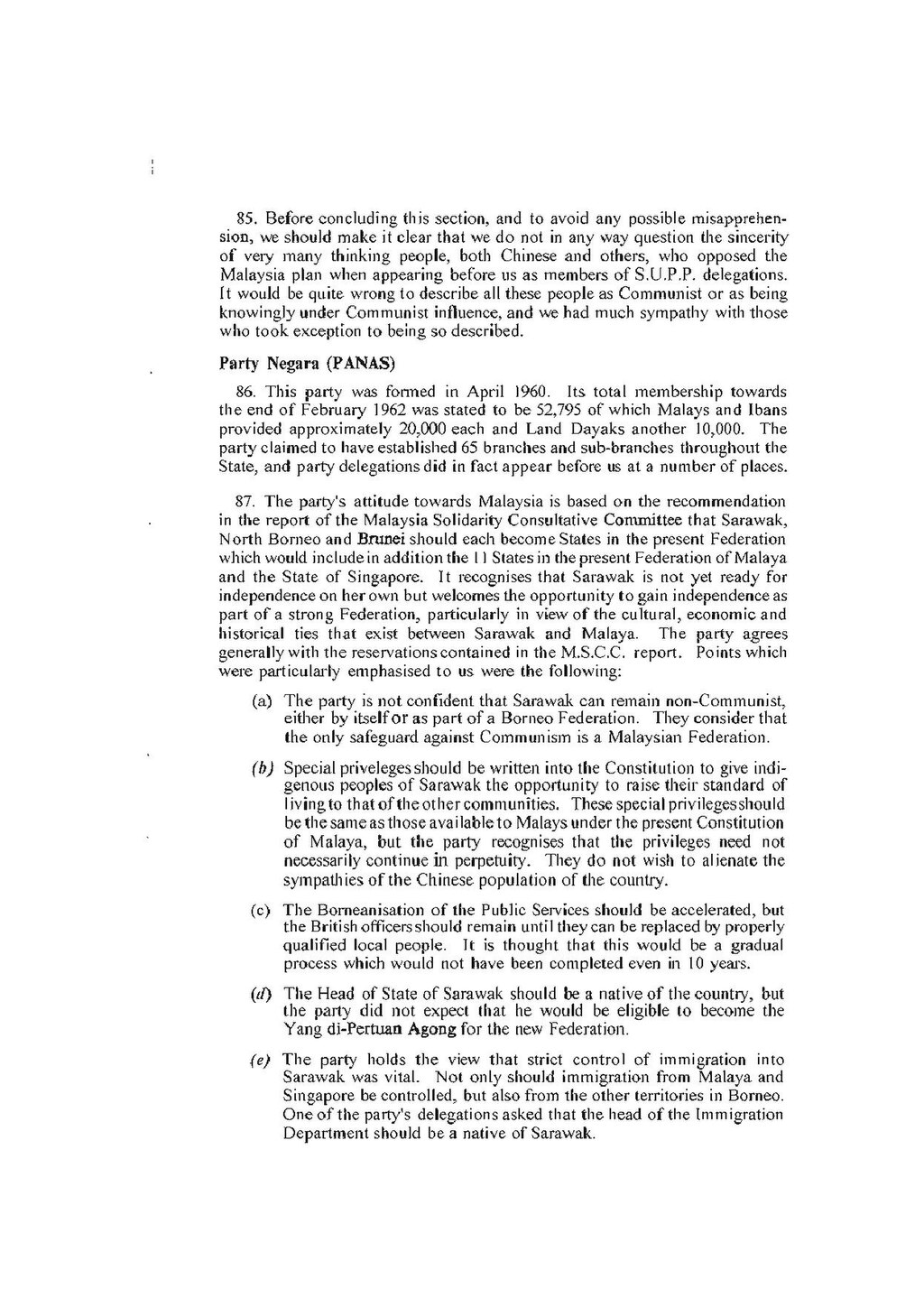85. Before concluding this section, and to avoid any possible misapprehension, we should make it clear that we do not in any way question the sincerity of very many thinking people, both Chinese and others, who opposed the Malaysia plan when appearing before us as members of S.U.P.P. delegations. It would be quite wrong to describe all these people as Communist or as being knowingly under Communist influence, and we had much sympathy with those who took exception to being so described.
- Party Negara (PANAS)
86. This party was formed in April 1960. Its total membership towards the end of February 1962 was stated to be 52,795 of which Malays and Ibans provided approximately 20,000 each and Land Dayaks another 10,000. The party claimed to have established 65 branches and sub-branches throughout the State, and party delegations did in fact appear before us at a number of places.
87. The party's attitude towards Malaysia is based on the recommendation in the report of the Malaysia Solidarity Consultative Committee that Sarawak, North Borneo and Brunei should each become States in the present Federation which would include in addition the 11 States in the present Federation of Malaya and the State of Singapore. It recognises that Sarawak is not yet ready for independence on her own but welcomes the opportunity to gain independence as part of a strong Federation, particularly in view of the cultural, economic and historical ties that exist between Sarawak and Malaya. The party agrees generally with the reservations contained in the M.S.C.C. report. Points which were particularly emphasised to us were the following:
